This post contains affiliate links. Please see our disclosure policy.
I have the 15 best mobility exercises for seniors to stay active and healthy. From stretches to strength training, these easy-to-follow exercises improve flexibility, balance, and overall wellness, helping seniors maintain independence and vitality.
One of the best things you can do to stay healthy and active with age is to make mobility exercises a regular part of your routine. Did you know that limited mobility is actually the thing that makes you look the oldest? When you are stiff and sore, you tend to move slowly and feel like the “Tin Man”.
Don’t worry if you’re already noticing mobility issues crop up, because it’s never too late to change! In fact, a quick mobility routine is often all it takes to start feeling better.
To feel the benefits firsthand, try the 15 best mobility exercises for seniors. These are the best exercises that will keep you in action and impact your overall health for years to come.
The Benefits of Mobility Exercises for Seniors
Before I dive into which mobility exercises to add to your regular exercise routine, let’s talk about why you should do them in the first place. Here are the standout health benefits of mobility exercises for seniors:
- Keeps joints healthy. Motion is lotion! Moving your joints through a healthy range of motion washes them in fluid, keeps them working smoothly and can help prevent joint pain.
- Improves stiffness and pain. It’s pretty common for joints to creak and hurt with age, especially if you have arthritis. Movement is often the number-one solution to stiff, achy joints, largely thanks to that fluid we mentioned earlier.
- Makes everyday activities easier. When your joints feel better, everyday activities tend to feel better, too. Plus, teaching your joints to move in a greater range of motion makes more movements possible, because you’re not limited by how far your ankles, knees, hips, spine, shoulders, elbows, and wrists can bend and rotate. An active lifestyle improves your quality of life and can help prevent risk of injury too.
- Help you stay active. If mobility exercises can make daily life easier, they can also help you stay active. Staying active is key for keeping your muscles strong, your heart and lungs fit, your mind sharp, and your balance on point. Aside from fending off chronic conditions, staying active can also help you live independently, maintain great mental health, and muscle strength.
- Makes you look (and feel!) younger. Few things make you look and feel older than the inability to move. Mobility exercises are simple to add to your routine, and can shave years off if done consistently.
Complete these three self-tests for aging to see how well your body is functioning, and where you might be able to improve.
Tips for Doing These Mobility Exercises
These are my tips to get the most out of your mobility exercises routine:
- These mobility exercises and stretching exercises are for people with mobility issues and those looking to stay active. They’re not for people with injuries. If you have an injury, work with a physical therapist or other healthcare provider who can supervise your recovery.
- You only need floor space and a yoga mat for most of these exercises. There are also chair exercises that use a seated position.
- Do these exercises two to three times per week. Keep your movements controlled and work at a comfortable pace. If you can build them into your daily routine, even better!
- At first, these exercises might feel awkward and stiff. But the more you do them, the warmer your muscles and the looser your joints will get. Over time, the following exercises will feel easier, and so will daily physical activity.
- Can’t do an exercise as written? Good news! I’ve included tips to modify a move if needed.
Ready to get started? Here are the best mobility exercises for seniors to stay healthy and active.
1. Shoulder Rolls
Basic shoulder rolls are simple exercises that loosen up the shoulder muscles and joints. Shoulder mobility is critical for basic tasks like reaching overhead and sports like tennis and swimming.
How to Perform a Shoulder Roll:
- Stand with your feet hip-width apart.
- Shrug your shoulders up toward your ears. Then, slowly roll them in a forward motion.
- After about 30 seconds, roll your shoulders in a backward motion.
Muscle Groups Targeted: Shoulders
2. Arm Circles
This move loosens the shoulder joints and engages the shoulders, biceps, and triceps. It’s an easy way way to improve posture and get your arms and shoulders ready for sports like swimming and pickleball.
How to Perform an Arm Circle:
- Stand tall with your feet shoulder-width apart.
- Raise and extend your arms to your sides.
- Without bending the elbows, rotate your arms forward in small circles for 30 seconds. Then, rotate your arms backward in small circles for 30 seconds.
Muscle Groups Targeted: Shoulders, Biceps, Triceps, Upper Back
3. Hip Circles
This simple exercise helps loosen up the muscles and joints in your hips. As the hips play a role in practically every activity you do, it’s important for them to have a healthy range of motion.
How to Perform a Hip Circle:
- Stand tall with your feet shoulder-width apart and place your hands on your hips.
- Keeping a slight bend in your knees, slowly circle your hips in a clockwise direction for 30 seconds. Then switch directions and circle your hips counterclockwise for 30 seconds..
Muscle Groups Targeted: Lower Back, Hips
4. Standing Side Bends
The standing side bend stretches the spine and obliques (side-abs). This helps improve posture for sports, new exercise, and daily activities.
How to Perform a Standing Side Bend:
- Stand tall with feet and legs together. On an inhale, reach both arms straight up overhead.
- Lower your right arm to the right side of your body. On an exhale, lengthen the left arm over your head, bending your body gently to the right.
- Inhale to return both arms overhead and repeat on the left side. Do six to 10 reps per side.
Do this exercise in a sturdy chair if you get tired from standing or can’t keep your balance while bending. If chair exercises fit your comfort zone, try these 10 best chair exercises for seniors too!
Muscle Groups Targeted: Spine, Obliques
5. Wall Push-Ups
Wall push-ups are a great mobility exercise for seniors that target the shoulders, chest and triceps. It helps with daily activities such as pushing open doors and getting up from a chair.
How to Perform a Wall Push-Up:
- While standing, place your hands on a wall shoulder-width apart.
- Perform a push-up, lowering your chest toward the wall slowly. Then press back up.
- Your elbows should angle behind you, not point straight out to the sides.
- Do six to 10 reps.
Muscle Groups Targeted: Shoulders, Triceps
6. Side-to-Side Lunges
This is a great lower body exercise for strengthening your quads, glutes, hamstrings, and inner and outer thighs. And by moving side-to-side, you’ll improve balance and stability.
Lunges are also a great functional strength training exercise that helps maintain activity levels through aging.
How to Perform a Side-to-Side Lunge:
- Start standing with feet slightly wider than shoulder-width apart and toes pointed forward.
- Shift your body weight onto one leg and bend the knee to a 90-degree angle. Press your glutes behind you and keep the other leg straight.
- Return to the center and switch sides. Do six to 10 reps per side.
To make this exercise easier, shorten your range of motion or hold onto the back of a chair for balance.
Muscle Groups Targeted: Quads, Glutes, Hamstrings, Outer Thighs, Inner Thighs
7. Chair Squats
This chair squat move strengthens the lower body and opens up the hips, helping build the strength and mobility you need to climb stairs and go from sitting to standing.
Squats are another great functional fitness exercise. There are so many benefits of deep squat variations for mobility!
How to Perform a Chair Squat:
- Stand directly in front of your chair, facing away from it with feet shoulder-width apart and toes pointing forward.
- Keeping your chest lifted, bend your knees to sit your hips down and back. Gently tap the chair with your butt.
- Push yourself back up to the starting position. Do six to 10 reps.
Muscle Groups Targeted: Quads, Glutes, Hamstrings
8. Seated Spinal Twists
The seated spinal twist move improves spinal mobility and stretches out the neck, chest, shoulders, glutes, and upper and lower back.
How to Perform a Seated Spinal Twist:
- Sit tall in a chair with your feet flat on the ground.
- Cross your right foot over your left leg as near to the hip as you can.
- Wrap your left arm around your right knee and pull it toward your body. Twist your torso slightly to the right.
- Slowly flow to the other side wrapping your ribcage. Repeat for 30 seconds.
Muscle Groups Targeted: Spine, Lower Back
9. Seated Single-Leg Extensions
This exercise helps strengthen the muscles around the knee and hip joints, contributing to improved joint stability and overall mobility. It helps daily activities such as walking and standing.
How to Perform a Seated Single-Leg Extension:
- Sit tall in a chair with your feet flat on the ground and grasp the sides of the seat.
- Keeping one foot planted and your upper body fixed, extend your opposite leg until it’s parallel to the floor.
- Bend your knee to return your foot to the ground. Do six to 10 reps per leg.
To make this exercise easier, choose a chair with an armrest and/or use a limited range of motion.
Muscle Groups Targeted: Quads, Hamstrings, Abdominals
10. Cat-Cows
The cat-cow yoga pose is a great mobility exercise for seniors that uses slow movements to release tension all along the spine, from the neck to the tailbone. It’s very effective for improving posture and doesn’t require any special equipment.
It’s also one of my favorite back strengthening exercises for seniors!
How to Perform a Cat-Cow:
- Begin on your hands and knees with hands directly under shoulders and knees directly under hips.
- Start with your spine in a “neutral” or long position. On an exhale, slowly tuck your tailbone, lowering the crown of your head so your back gently rounds into a cat pose.
- Return to a neutral spine. On an inhale, gently lift your chest and tailbone so your lower back curves downward. Look slightly upward with a relaxed neck. This is cow pose.
- Continue alternating between cat and cow for six to 10 reps.
You can also do cat-cow standing if the floor version is too challenging. Simply place your hands on top of your knees or on the seat of a chair and focus on moving your spine.
Muscle Groups Targeted: Neck, Spine, Shoulders, Upper Back, Middle Back, Lower Back
11. Thread-the-Needles
The thread-the-needle exercise stretches your upper back, shoulders and neck — all areas that get stiff from sitting for long periods.
How to Perform a Thread-the-Needle:
- Begin on your hands and knees with hands directly under shoulders and knees directly under hips.
- Raise your right hand out to the side and reach toward the ceiling. Follow with your gaze.
- Bring your right hand back down and thread it through your left arm, rounding and stretching through your torso.
- Reach as far as you can and keep repeating for six-10 repetitions. Reverse the movement and repeat on the opposite side.
If you struggle to get to the floor or feel pain on your hands and knees, perform this move from a standing position. Place your hands on a countertop and bring your bottom shoulder and arm to rest on the surface.
Muscle Groups Targeted: Shoulders, Upper Back, Neck
12. Bird-Dogs
The bird-dog strengthens the lower back and abdominals while teaching your body to improve balance and find stability.
How to Perform a Bird-Dog:
- Begin on your hands and knees with hands directly under shoulders and knees directly under hips.
- Reach one arm long, draw in the abdominals, and extend the opposite leg behind you. Hold briefly.
- Return your hand and knee to the floor and repeat on the other side. Do six to 10 reps per side.
To make the exercise easier, lift just one limb at a time instead of two. Or keep your limbs closer to the ground.
Muscle Groups Targeted: Abdominals, Lower back
13. Fire Hydrants
This mobility exercise for seniors strengthens the glutes and improves hip stability. It’s also a great way to open up the hip joints.
The fire hydrant is included in my list of hip strengthening exercises for seniors for good reason!
How to Perform a Fire Hydrant:
- Begin on your hands and knees with hands directly under shoulders and knees directly under hips.
- Use the outer-thigh muscles and glutes to lift one knee out and up, keeping your knee bent at a 90-degree angle.
- Lower your leg and repeat on the other side. Do six to 10 reps per side.
If you struggle to get on the floor, perform this movement while standing. Hold onto a chair for support and kick one bent leg out to the side.
Muscle Groups Targeted: Glutes, Quads, Abdominals
14. Bridges
The bridge is a classic yoga pose that stretches the chest, neck, spine and hips and also strengthens the glutes, core and lower back.
How to Perform a Bridge:
- Lie on your back with knees bent and feet flat on the floor close to your glutes. Your knees should be in line with your hip bones.
- Place your arms flat on the floor at your sides and tuck your shoulders under your back.
- Press your palms into the ground as you raise your hips, squeezing your glutes and abdominals. Keep your neck relaxed on the mat.
- Continue to move your hips up and down for 30 seconds.
Muscle Groups Targeted: Chest, Neck, Spine, Glutes, Abdominals, Lower Back
15. Seated Hamstring Stretches
Hamstring flexibility is important for walking and running, and this stretch is one of the best ways to achieve it.
How to Perform a Seated Hamstring Stretch:
- Sit in a chair with your legs stretched out in front of you, knees slightly soft.
- Hinge over from your waist and reach for your toes feeling the stretch in the back of the legs.
- Sweep back up to seated moving at your own pace and repeat for 30 seconds.
Muscle Groups Targeted: Hamstrings, Calves
| Product Image | Product Name | Primary Button |
|---|---|---|
FAQs
Exercises that encourage your joints to move through their full range of motion are a great way to improve mobility for seniors with mobility issues. The key is to modify the movements to your ability so you can do them safely and consistently. This could mean performing exercises with a limited range of motion. It may also help to do them seated or holding onto a chair for balance.
Any movement will improve mobility. However, exercises that move your joints through a controlled, healthy range of motion are your best bet.
Seated exercises and movements that incorporate a chair or wall for support are great for people with limited mobility. You’ll find plenty of options below!
Stretching is about a muscle’s ability to lengthen, whereas mobility is about the ability of a joint to move through its full range of motion. Mobility is usually done to warm up and get moving. Stretching is best at the end of an activity when muscles are warm.
Many of the exercises don’t require any equipment at all, so you can get moving at home right now. If you’re looking for an extra challenge or additional support, check out our best home gym equipment for seniors recommendations.
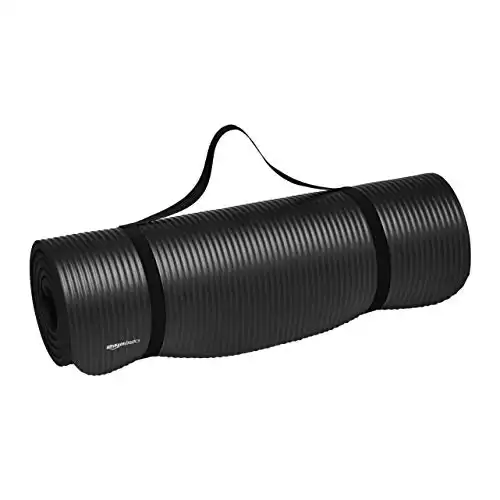
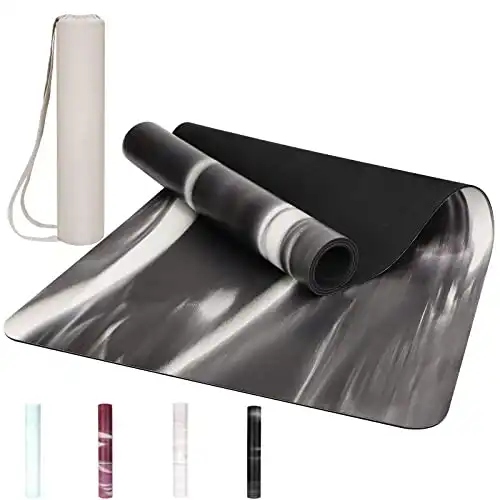
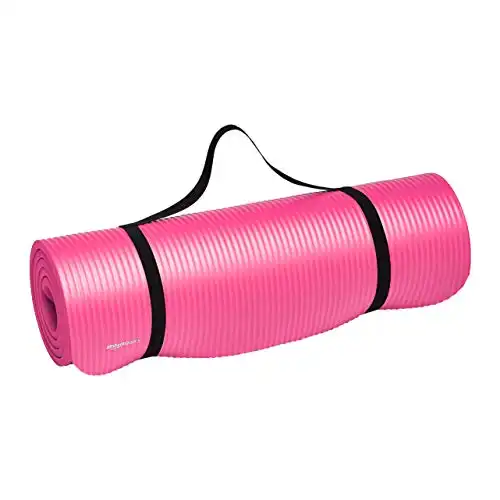

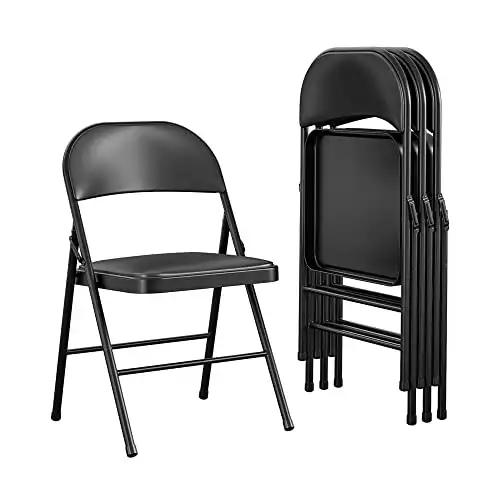
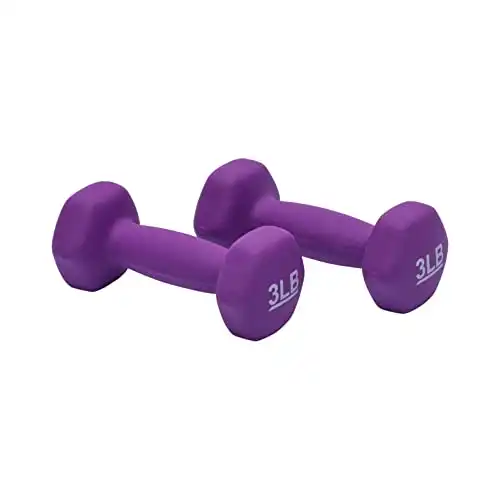



Hi Chris,
I love these recommendations for mobility! I have tight hamstring muscles, arthritis in my knees and feet, and I am in menopause, so a lot to deal with! This really helps, thank you.
I’ll be 78 years young next week and I’m glad to have all of these tried and true mobility exercises in one place. Thank You for your endless encouragement!
Julie
THank you for your kind comment! 78 years young! Congrats!!
Thank you so much for posting these exercises. I am eager to begin a routine suited for older people and to feel better physically and mentally.
Thank you. We travell twice a year with our camper. Usually I find it complicated to keep with my iwn routine workout. These 15 excersise will help to keep a routine. Thank you
Molte grazie per gli esercizi..Belli ed efficaci senza dubbio .
I am a 65 year old woman I just have no
spacious awareness for about a year i have a few stroke how can I get back into exercises again and walk on my own without holding onto people please help
Well – try some balance exercises and chair exercises – we have both on Get Healthy U TV. Also see if you can qualify for any physical therapy – that would be very beneficial to you!